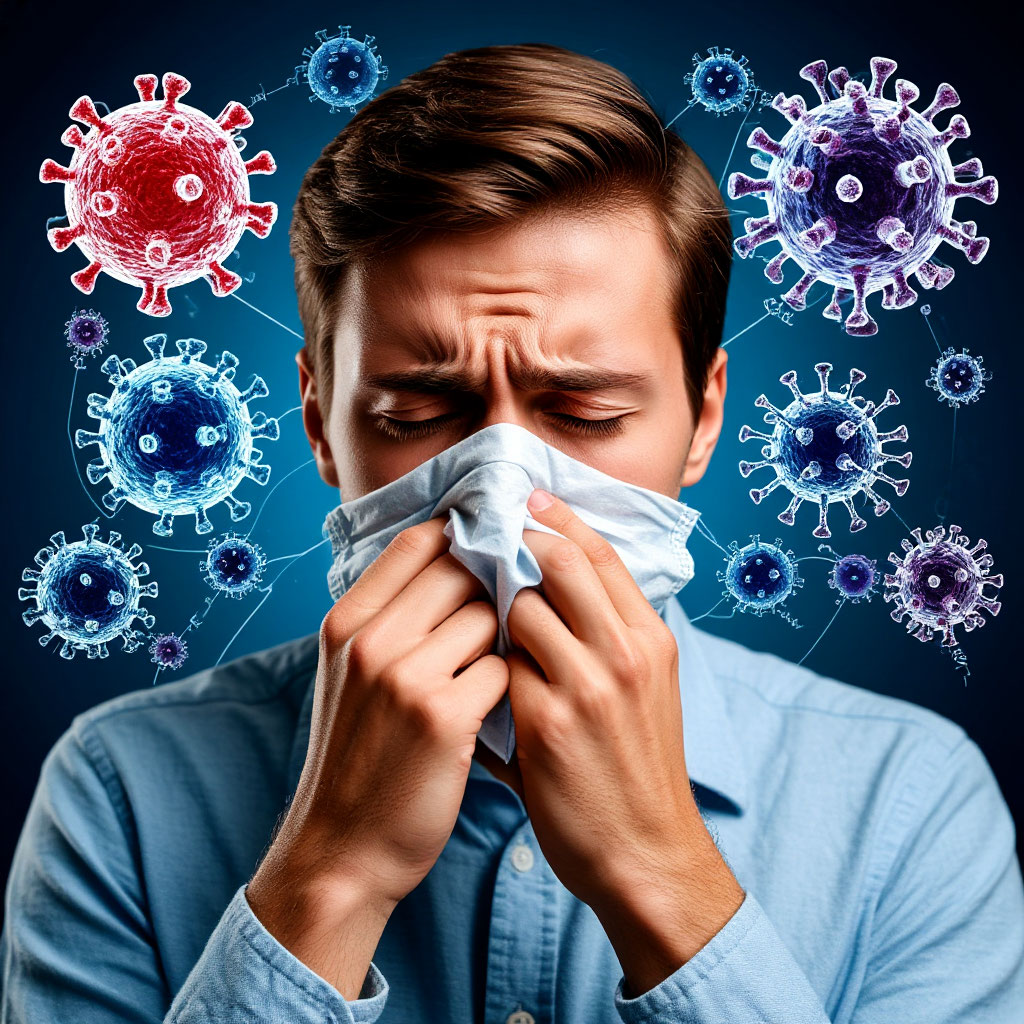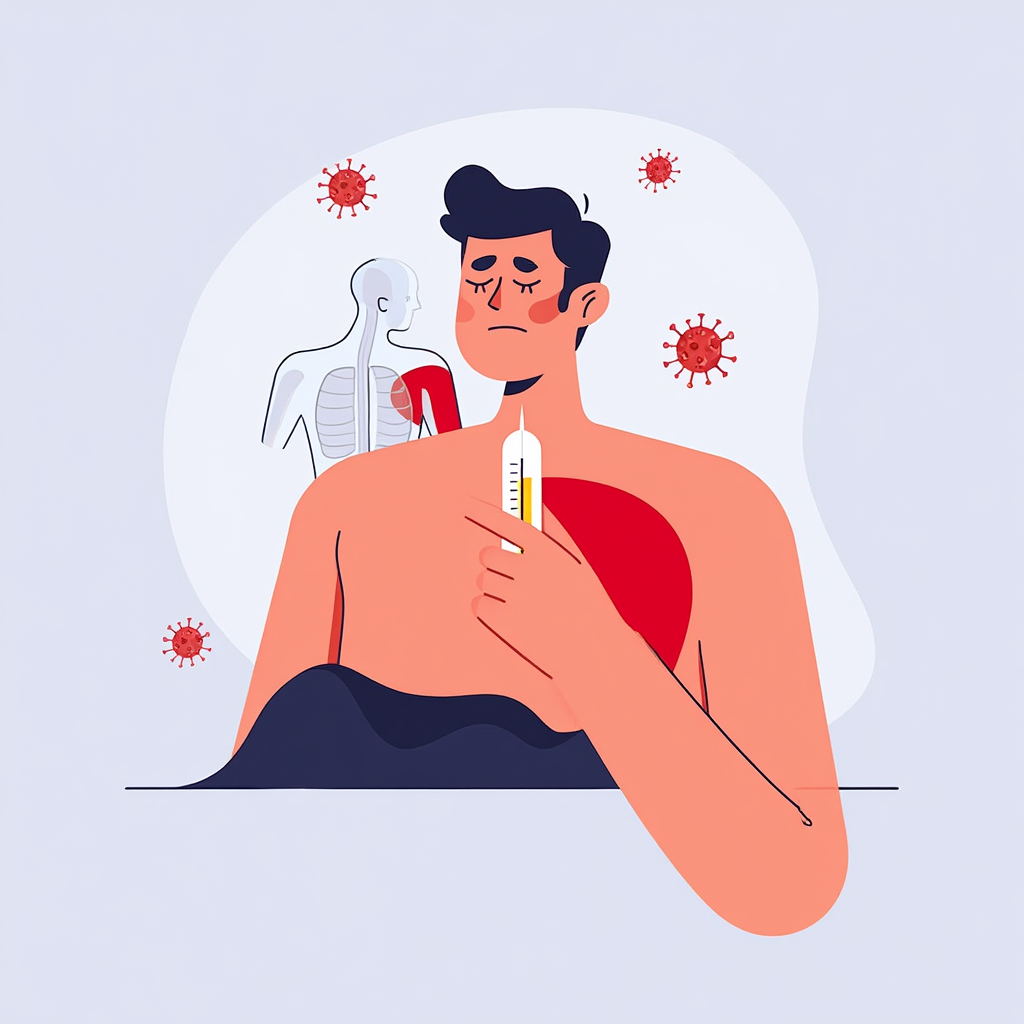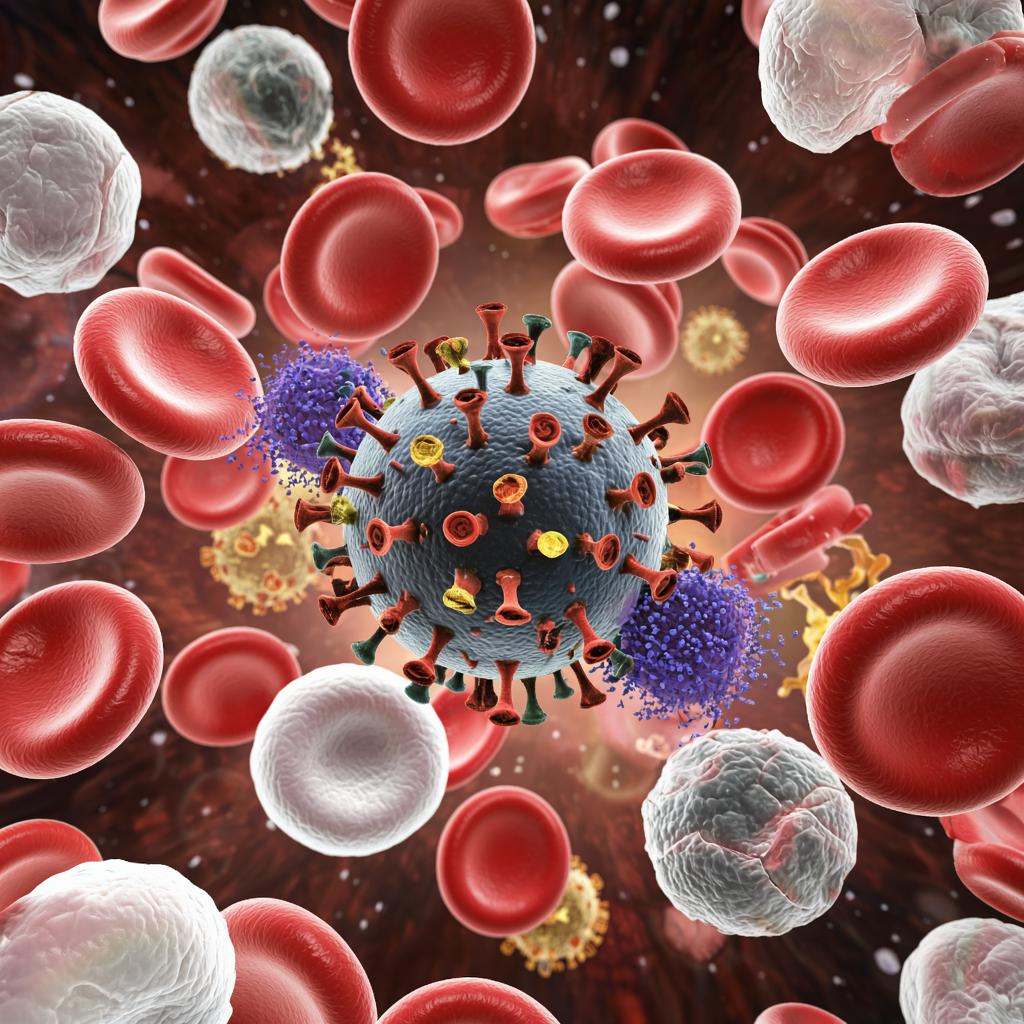Viruses are tiny microbes that can’t survive or reproduce on their own. To multiply, they invade your body’s cells and hijack their machinery. When cold viruses enter your nose or throat, they start an attack that triggers inflammation and a range of cold symptoms. According to a 2024 World Health Organization study, about 1 billion people worldwide catch viruses causing the common cold every year. Understanding what happens during a cold helps you better manage symptoms and recover faster. How do these viruses affect your body and how does your immune system respond to the fight?

How the Body Recognizes a Virus
When you’re trying to understand what happens during a cold, it starts with your body spotting the enemy. Cold viruses slip in through your nose or mouth, but they don’t go unnoticed. Your immune system is like a security team that’s always on duty. Cells like dendritic cells and macrophages act as lookouts. They snatch up bits of the virus and flash them to other immune cells, like T-cells, to raise the alarm. This sets off the whole defense operation.
The First Line of Defense
Your skin, mucus, and tiny nose hairs are the first roadblocks. They try to trap viruses before they get too far. If a virus sneaks past, your innate immune system kicks in. It doesn’t care what the invader is—it just attacks anything foreign. Proteins called interferons signal nearby cells to toughen up. This early fight is why you might feel off before cold symptoms fully hit. Your body’s already at war, even if you don’t realize it.
How It Knows It’s a Virus
Viruses carry unique markers, like ID tags, that your body spots. These are called antigens. Your immune cells are trained to recognize them. Once they do, they release chemicals, like cytokines, to rally the defenses. This process is quick and precise. It’s how your body defense preps to tackle the specific cold viruses causing the trouble. Without it, the virus would run wild.

Why Fever Occurs During a Cold
Part of what happens during a cold is your body turning up the heat. Fever isn’t random—it’s a strategy to make life tough for viruses. Cold viruses love cooler spots, like your nose. By boosting your body temperature, your system creates a hostile zone for them. It’s like cranking the heat to drive out pests.
- It slows viral spread. Viruses struggle to multiply in higher temps.
- It powers up immune cells. Warmer conditions make them more effective.
- It sounds the alarm. Fever signals your brain to ramp up defenses.
- It speeds your metabolism. Your body burns energy to fuel the fight.
Why You Feel Hot and Cold
Fever messes with your internal thermostat, which explains the chills or sweats. Your brain’s hypothalamus sets a new “normal” temperature. If you’re colder than that, you shiver to warm up. If you’re warmer than that, you sweat to cool down. It’s your body trying to find the right balance to fight the infection. This can make you feel like a human seesaw, but it’s all part of what happens during a cold.
Is Fever Bad?
A mild fever helps your immune response do its job. It’s like flipping on battle mode. But if it climbs too high, say above 103°F, it can strain your system. Kids and older folks need extra attention since their bodies handle heat differently. Staying hydrated and resting keeps things manageable while your body fights on.

Where Congestion and Cough Come From
Stuffy nose and hacking cough? Those are classic cold symptoms, and they’re your body’s way of evicting the virus. Cold viruses target your respiratory system, especially your nose and throat. They invade the cells there, stirring up trouble. Your body fights back by pumping out mucus and triggering coughs to clear the mess.
| Symptom | Cause | What It Does |
| Congestion | Swollen blood vessels in nasal passages | Traps viruses and debris |
| Runny Nose | Excess mucus production | Flushes out invaders |
| Cough | Irritation in throat or lungs | Clears airways of mucus and viruses |
| Sneezing | Reflex to nasal irritation | Expels viruses from nose |
Why Your Nose Gets Stuffy
When viruses hit your nasal passages, your body sends extra blood to the area. This causes swelling, making you feel plugged up. Mucus production spikes to trap and flush out the viruses. It’s messy but works. That’s why you’re grabbing tissues nonstop. It’s all part of what happens during a cold to clear out the enemy.
The Cough Connection
Coughs come from irritated airways. Viruses can inflame your throat or lungs. Your body’s reflex is to cough, pushing out mucus and invaders. It’s like your lungs shouting, “Get lost!” A dry cough might point to throat irritation, while a wet one means mucus buildup. Either way, these respiratory symptoms are your body’s defense at work.
The Immune System’s Role in Fighting Infection
Your immune system is the star player in what happens during a cold. It’s a network of cells, tissues, and organs teaming up to fight. Once it spots a virus, it launches a multi-step attack. It identifies the invader, sends specialized cells to destroy it, and remembers the virus for next time. This is your body defense shining.
- White blood cells strike. They target and wipe out infected cells.
- Antibodies tag viruses. They mark invaders for destruction.
- Lymph nodes filter junk. They trap viruses and bacteria.
- Memory cells log data. They prep for quicker fights later.
Innate vs. Adaptive Immunity
Your innate immune system is like a rapid-response crew. It jumps on any invader right away. But it’s not picky. Your adaptive immune system, though, studies the virus’s tricks. It builds antibodies tailored to that specific cold virus. This takes a few days, which is why you feel worse before improving. Once done, you’re often immune to that virus for a bit.
Why It Takes Time
Your immune response needs time to rally its forces. That’s why cold symptoms stick around for a week or two. Your body’s churning out antibodies and clearing infected cells. Rest, water, and good food fuel this process. It’s like equipping your immune system with what it needs to win. This slow grind is a big part of what happens during a cold.
What Inflammation Really Does
Inflammation plays a huge role in what happens during a cold, even if it gets a bad rep. It’s your body focusing resources on the infection. Blood vessels widen to let immune cells rush in. This causes redness, swelling, and warmth. It’s chaotic but crucial for fighting cold viruses.
The Good Side of Inflammation
Inflammation walls off the virus to stop its spread. Immune cells, like neutrophils, flood the area to attack infected cells. Chemicals like histamine make blood vessels leaky, letting more defenders in. This is why your throat feels swollen or your nose gets puffy. It’s your body’s plan to contain the damage during a cold.
When Inflammation Goes Overboard
Sometimes, inflammation overdoes it. Too much swelling can make you miserable, like when your sinuses throb. In rare cases, it can lead to issues, especially if the infection hits your lungs. Fluids and remedies like saline sprays can ease the pressure. Your body’s trying to help, but it sometimes needs a nudge to chill out.

Why We Feel Fatigued and Achy
Ever wonder why you can barely move during a cold? That’s your body begging for a break. Fighting a cold burns a ton of energy. Immune cells work overtime, draining you. Chemicals like cytokines also mess with your brain, making you feel sluggish and sore. It’s all tied to what happens during a cold.
The Energy Drain
Your body shifts energy to the immune response. It’s like rerouting power to shields in a sci-fi flick. Digestion, exercise, and even thinking get sidelined. That’s why you’re exhausted after doing nothing. Your body’s focused on battling cold viruses. Resting gives it the fuel to keep fighting.
Why Muscles Ache
Those aches? They’re linked to inflammation and cytokines. These chemicals make your nerves sensitive, so your muscles feel sore. It’s not from exercise—it’s your body signaling it’s under attack. Warm baths or light stretching can ease the pain. Your body’s just asking for a pause while it handles what happens during a cold.
What happens during a cold? Your body becomes a battlefield, with your immune system leading the charge against cold viruses. Fever cranks up the heat to slow invaders. Congestion and coughs flush them out. Inflammation and immune cells tackle the virus head-on. That fatigue and achiness? It’s your body demanding rest to focus on the fight. Drink water, rest up, and let your system do its thing. You’ll be back to normal before you know it.
